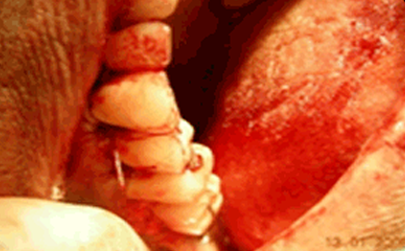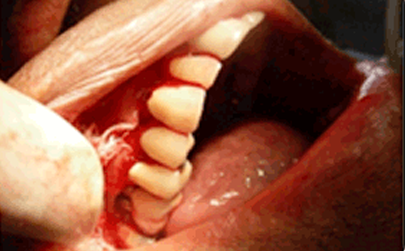+91-079-26421798
,+91 9825598120
For Appointment
Bad breath, medically called halitosis, can result from poor dental health habits and can also be made worse by the types of foods you eat and other unhealthy lifestyle habits.
Deep CleaningTo keep these dental problems from becoming serious, I recommend twice yearly checkups. Regular cleaning enables me to keep tartar from accumulating on your teeth. During your regular visits, I will also perform a thorough exam to check your gums, measure the bone levels around your teeth, look for cavities, check your restorations, and examine your bite.
Regular exams are the best way to eliminate the growth phase of dental problems, and minimize the time and money you spend in the dental chair.
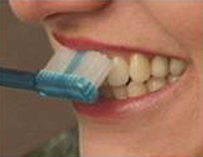
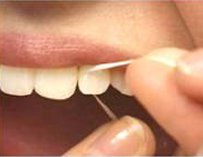
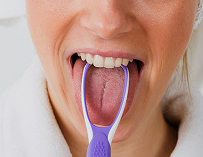
If plaque and tartar is left on the teeth, as we mentioned before, it provides the right conditions for bacteria to thrive. The bacteria irritate the gums, which means that they bleed more easily. This is the early stage of gum disease called gingivitis. If gingivitis not treated and nothing is done about it, the inflammation will work its way down towards the foundations of the tooth causing a "periodontal pocket". Again, within the confines of the pocket, the conditions are such that the bacteria can have a right old party, and cause more damage. Gum disease can break down the support (bone) structures of the teeth, so that eventually, they will become loose. The problem is that until it gets quite severe, the person often has no symptoms. Sadly, the damage to the support structures of the teeth is irreversible. The good news is that if gum disease is caught in time, its progression can be halted and improved upon, and that is the key.
To stop gum disease from progressing, your dentist may advise periodontal therapy i.e. flap surgery with or without bone graft, or deep cleaning. This gets rid of the bacteria in the pocket and provides the necessary conditions for healing to occur.
The tartar and plaque is a responsible for gum disease. So it needs to be removed regularly to prevent gum disease. This procedure is carried out with use of ultrasonic scaler and hand instruments.
Proper technique and good equipment doesn’t damage the tooth surface.
Bleeding gums
Swollen gums
Foul smell from mouth
Sensitivity to cold and sour
Food logement
Bleeding while brushing
Change in position of teeth
Smokers and tobacco chewers may have gum problem without any symptom
Mobile (loose) teeth
No the procedure can be carried out with or without creating numbness in the teeth. The need of numbness depends on severity of disease and patient tolerance.
Sometimes in certain cases the dentist may put antimicrobial / antibiotic in the gums to get better results.
The procedure usually takes one appointment but in certain cases two appointments may be needed.
This procedure is carried out in local anaesthesia (making the teeth and gums numb). The gums are slightly deflected from the teeth and inner surface of gum, the root surface and bone is cleaned so further progress of disease can be prevented. If needed artificial bone graft material is placed on the bone to form new bone and make the tooth more strong. Some times a specific GTR membrane is placed to get more favorable results.
Bleeding gums
Swollen gums
Foul smell from mouth
Sensitivity to cold and sour
Food logement
Bleeding while brushing
Change in position of teeth
Smokers and tobacco chewers may have gum problem without any symptom
Mobile (loose) teeth
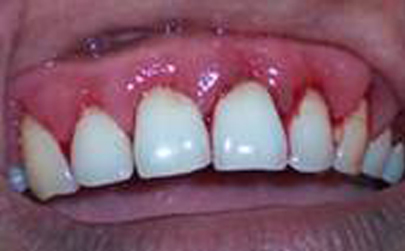
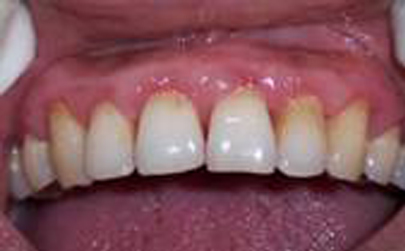
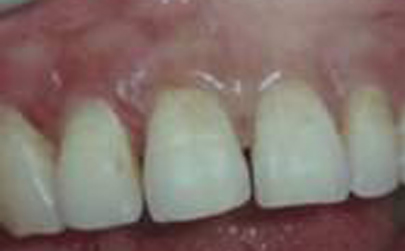
.jpg)
.jpg)
No, the procedure is carried out in local anaeshesia. I t does not give pain.




As a natural tooth there can be bone loss around implants also which can be treated with various bone grafts and GTR so the lost bone can be regenerated.
If bone loss is very advanced sometimes the implant may needs to removed and replaced with other one.
